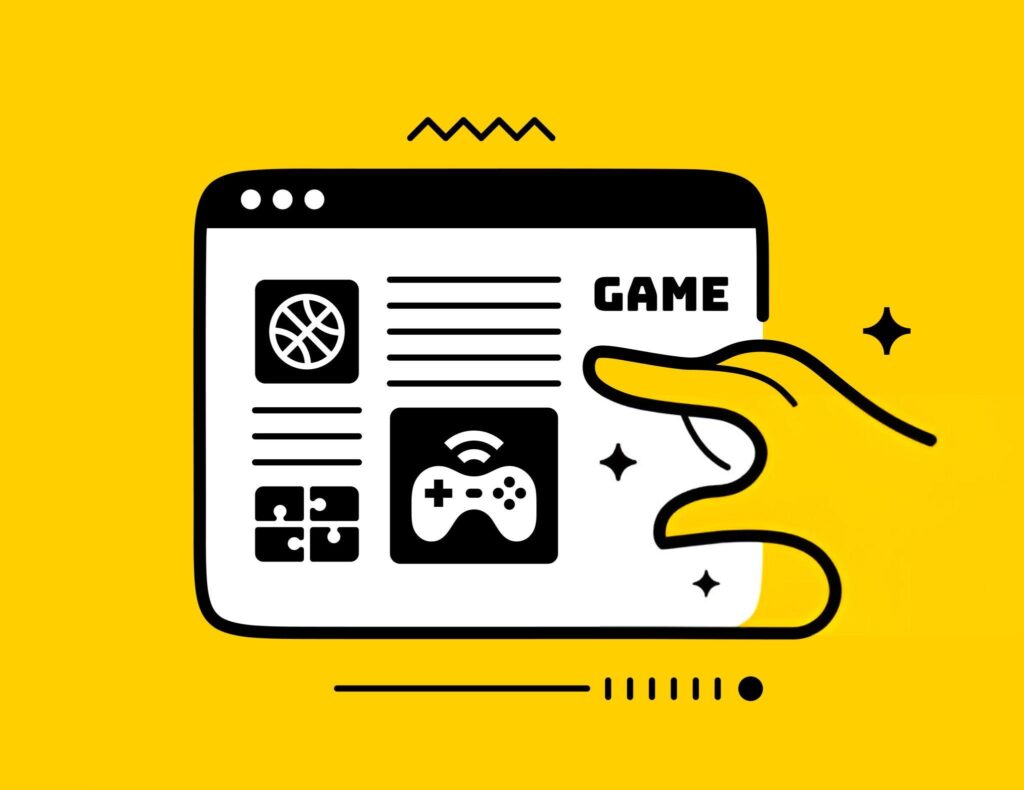When “Play Time” Became My Study Time
I used to think games were just for switching off my brain. After a long day, I’d play something mindless to relax. But one afternoon, I stumbled on a geography quiz game online.
Ten minutes in, I wasn’t just guessing cities — I was actually learning them.
The next day, I casually dropped “Oh, that’s near the Ural Mountains” into a conversation. My friends thought I’d been reading an atlas. Nope… I’d just been playing a browser game.
That’s when it hit me: not all games are pure time sinks. Some are sneaky little learning machines. They keep you entertained, but you walk away knowing more than when you started.
So if you’re an adult looking for fun and a mental workout, here are my favorite educational games for adults you can play right in your browser.
Why Learning Through Play Works So Well
You’ve probably noticed it’s easier to remember lyrics to a song you love than a random fact you read once. That’s because when you enjoy something, your brain rewards you with a hit of dopamine. That “feel-good” chemical helps cement memories and makes you want to repeat the activity.
Educational games take advantage of this. They weave learning into challenges, puzzles, and stories so your brain stays engaged. You’re not memorizing flashcards — you’re playing, competing, and exploring. The learning just… sneaks in.
GeoGuessr – Explore the World Without a Passport
GeoGuessr drops you into a random Google Street View location anywhere in the world. Your mission: figure out where you are. It’s part puzzle, part detective work. You scan road signs, look at the scenery, and even check the cars to guess the country.
When I first played, I was terrible. I’d guess “Brazil” and end up in Croatia. But after a few sessions, patterns emerged — road markings, types of vegetation, even the style of billboards. Suddenly, I was recognizing places I’d never been to.
This game is fantastic for building geography knowledge in a way that sticks. You don’t just see a map — you live in it for a few minutes.
Pro Tip: Play with friends and compare guesses. You’ll learn faster by seeing how others spot clues.Sporcle – The King of Trivia Challenges
Sporcle is like a buffet of quizzes covering everything from world capitals to “Name all the Oscar-winning movies from the 90s.” The time limits keep you on your toes, but the real learning comes from seeing the answers you missed.
I once played a “Countries of Africa” quiz every day for a week. By day three, I could fill in most of the map without thinking. By day seven, I felt like I’d unlocked a secret geography superpower.
It’s addictive, but in the most productive way possible.
Pro Tip: Don’t shy away from topics you think you’re bad at. The repetition will work wonders.
Lumosity – Your Brain’s Personal Gym
Lumosity is built specifically for brain training. It gives you a mix of short games that target memory, attention, problem-solving, and flexibility. The best part? It tracks your progress so you can see real improvement over time.
When I played regularly, I noticed my short-term memory getting sharper. I’d remember shopping lists without checking my phone, or recall details from meetings more easily.
The interface feels like a friendly coach rather than a sterile testing program, which makes you want to come back.
Pro Tip: Play in the morning before work. It’s like a mental warm-up for the day.
Duolingo – Language Learning That Feels Like a Game
Yes, Duolingo is technically an app, but you can also use it in your browser. And if you’ve ever wanted to pick up another language, it’s a fun way to start.
You earn points, unlock levels, and even compete on leaderboards while learning vocabulary and grammar. The bite-sized lessons make it easy to fit into a coffee break, and the repetition keeps the words fresh in your mind.
When I was learning Spanish, Duolingo’s streak system kept me accountable. Missing a day felt like breaking a promise to myself — in the best way.
Pro Tip: Speak out loud during exercises. It cements pronunciation and makes the learning more active.
Financial Football – Score Goals While Learning Money Skills
This one surprised me. Financial Football, created by Visa, teaches money management through a fast-paced sports game. You answer financial literacy questions to move the ball down the field and score.
I learned more about budgeting and interest rates in a few rounds than I did from some boring online courses. And because it’s competitive, you’re more motivated to get the answers right.
Pro Tip: Play on a harder difficulty for tougher questions. That’s where the real learning happens.
Comparison Table: My Top Educational Games for Adults
| Game Name | Main Learning Focus | Why It Works for Me | Ideal Session Time |
|---|---|---|---|
| GeoGuessr | Geography & culture | Turns sightseeing into detective work | 10–20 mins |
| Sporcle | General knowledge | Huge variety keeps it fresh | 5–15 mins |
| Lumosity | Memory & focus | Tracks real improvement | 10–15 mins |
| Duolingo | Language skills | Daily streak keeps me coming back | 5–10 mins |
| Financial Football | Money management | Competition makes me care about answers | 10–15 mins |
Why Browser Games Beat Mindless Scrolling
Let’s be honest — we’ve all lost half an hour scrolling social media only to feel a little emptier afterward. Educational games are a way better deal for your brain. You still get the quick-hit entertainment, but you also gain knowledge or sharpen skills.
And because these games are browser-based, you can play them anywhere without a download. Whether you’re on a lunch break, winding down in the evening, or avoiding that one email for five more minutes, you can jump right in.
How I Fit Them Into My Day Without Overdoing It
The key for me has been moderation. If I play for hours, even the most educational game starts to feel like a waste. But a few short sessions a day? That’s where the magic happens.
I often start my day with a round of Lumosity to get my brain firing. During lunch, I’ll play a quick Sporcle quiz or a couple of GeoGuessr rounds. In the evening, I might practice a few Duolingo lessons while dinner’s cooking.
It’s not about replacing all your free time with educational games. It’s about making small swaps that keep your mind sharp.
Tips for Getting the Most Out of Educational Games
If you want the learning to stick, treat these games like a tool, not just a toy.
Here’s what’s worked for me:
-
Mix it up. Don’t just play one type of game. Variety challenges your brain in different ways.
-
Reflect afterward. Take a minute to think about what you learned. It reinforces the knowledge.
-
Challenge yourself. Play harder levels once you’re comfortable. That’s when real growth happens.
Final Thoughts: Learning Disguised as Fun
Educational games for adults aren’t just for killing time — they’re for building skills, expanding knowledge, and keeping your mind active without feeling like work.
I’ve learned world capitals, brushed up on my Spanish, improved my memory, and even sharpened my budgeting skills, all while genuinely having fun. And that’s the beauty of it: you get smarter without realizing it’s happening.
So the next time you’re tempted to scroll aimlessly, try firing up one of these games instead. You might just surprise yourself with what you learn before dinner.



